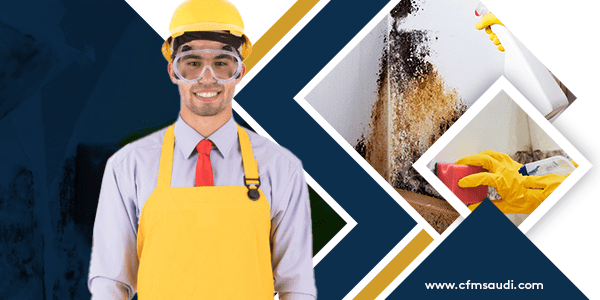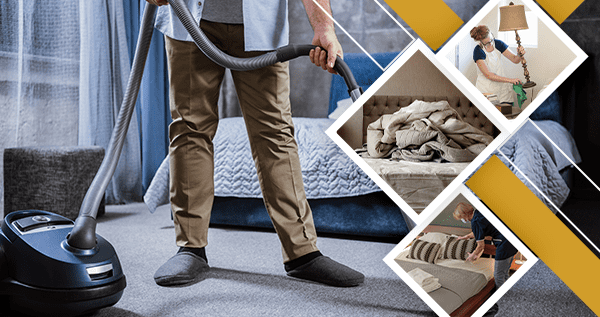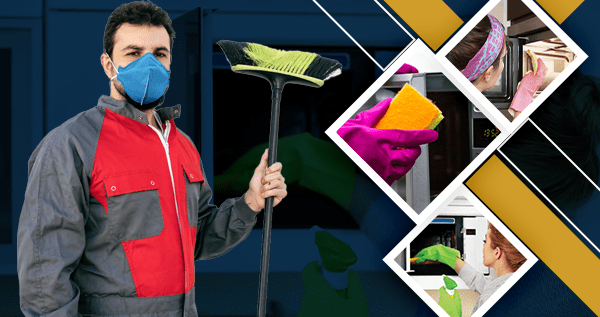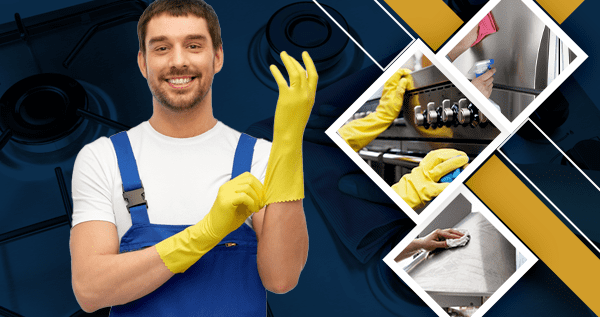Specialist Cleaning Methods for Grease and Grime in Commercial Kitchens
Commercial kitchens are notorious for accumulating grease and grime. Over time, this build-up can become a health hazard, as well as impacting the efficiency of kitchen equipment. Regular cleaning in commercial kitchens is essential, and specialist cleaning methods are often required to tackle the toughest grease and grime. In this article, we will explore some of these specialist cleaning methods, and how they can help maintain cleanliness and hygiene in commercial kitchens.
The Importance of Specialist Cleaning
Commercial kitchens are subject to stringent health and safety regulations, and regular cleaning is a key requirement to ensure compliance. Grease and grime can accumulate on various surfaces, including countertops, stovetops, exhaust hoods, and kitchen equipment. If left unaddressed, this build-up can become a breeding ground for bacteria, leading to food contamination and potential health risks.
Specialist cleaning methods are specifically designed to target grease and grime, effectively removing them from surfaces and equipment. These methods not only ensure cleanliness and hygiene but also help extend the lifespan of equipment by preventing damage caused by the build-up of grease and grime.
Steam Cleaning
Steam cleaning is a highly effective method for removing grease and grime from surfaces in commercial kitchens. This method uses high-pressure steam to dissolve and lift dirt, grease, and other contaminants. The steam reaches cracks and crevices that are often hard to clean manually, ensuring a thorough and deep clean.
Steam cleaning is particularly useful for cleaning stainless steel surfaces, such as countertops and stovetops. It not only removes grease and grime but also eliminates bacteria and other microorganisms. Furthermore, steam cleaning does not require the use of harsh chemicals, making it an environmentally-friendly cleaning solution.
Chemical Degreasers
Chemical degreasers are powerful cleaning agents specifically formulated to tackle grease and grime in commercial kitchens. These degreasers are typically used on surfaces such as kitchen floors, walls, and exhaust hoods. They work by breaking down grease molecules, making it easier to remove them.
When using chemical degreasers, it is important to follow the manufacturer’s instructions carefully and take necessary safety precautions. Some degreasers may require dilution before use, while others may need to be allowed to sit for a certain period for optimal effectiveness. It is also important to rinse off any residue thoroughly to prevent contamination of food preparation areas.
Pressure Washing
Pressure washing is another effective method for cleaning grease and grime in commercial kitchens. This method utilizes a high-pressure spray of water to dislodge and remove dirt and grease from surfaces. Pressure washing is particularly useful for cleaning floors, walls, and hard-to-reach areas.
When using a pressure washer, it is important to adjust the pressure and nozzle accordingly to prevent damage to surfaces or equipment. Additionally, proper protective equipment, such as gloves and goggles, should be used to ensure safety during the cleaning process.
Deep Cleaning Services
In some cases, regular cleaning methods may not be sufficient to completely remove heavy grease and grime build-up. In such instances, professional deep cleaning services are recommended. These services utilize specialized equipment and techniques to tackle the toughest cleaning challenges in commercial kitchens.
Deep cleaning services often involve disassembling kitchen equipment, such as ovens and grills, to thoroughly clean each component. This ensures that even hard-to-reach areas are cleaned effectively. Professional cleaners are trained to use the appropriate cleaning agents and tools, reducing the risk of damage to equipment or surfaces.
Maintenance and Preventive Measures
In addition to regular cleaning and the use of specialist cleaning methods, implementing maintenance and preventive measures can help minimize grease and grime build-up in commercial kitchens. Some measures to consider include:
- Regularly inspecting and cleaning exhaust hoods and vents.
- Using filters to trap grease and prevent it from entering the exhaust system.
- Implementing a regular cleaning schedule for kitchen equipment.
- Properly disposing of grease and oil to prevent blockages and accumulation.
- Regularly cleaning and maintaining floor drains to prevent clogging.
- Training staff in proper cleaning techniques and providing them with appropriate cleaning supplies.
By incorporating these measures into daily operations, commercial kitchens can significantly reduce the build-up of grease and grime, ensuring a cleaner and safer environment for both staff and customers.
Conclusion
Specialist cleaning methods play a vital role in maintaining cleanliness and hygiene in commercial kitchens. Steam cleaning, chemical degreasers, pressure washing, and deep cleaning services are all effective ways to combat grease and grime build-up. By implementing maintenance and preventive measures, commercial kitchens can further reduce the risk of build-up and ensure a clean and safe environment for all.












